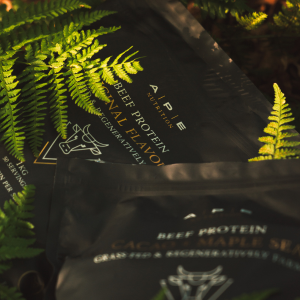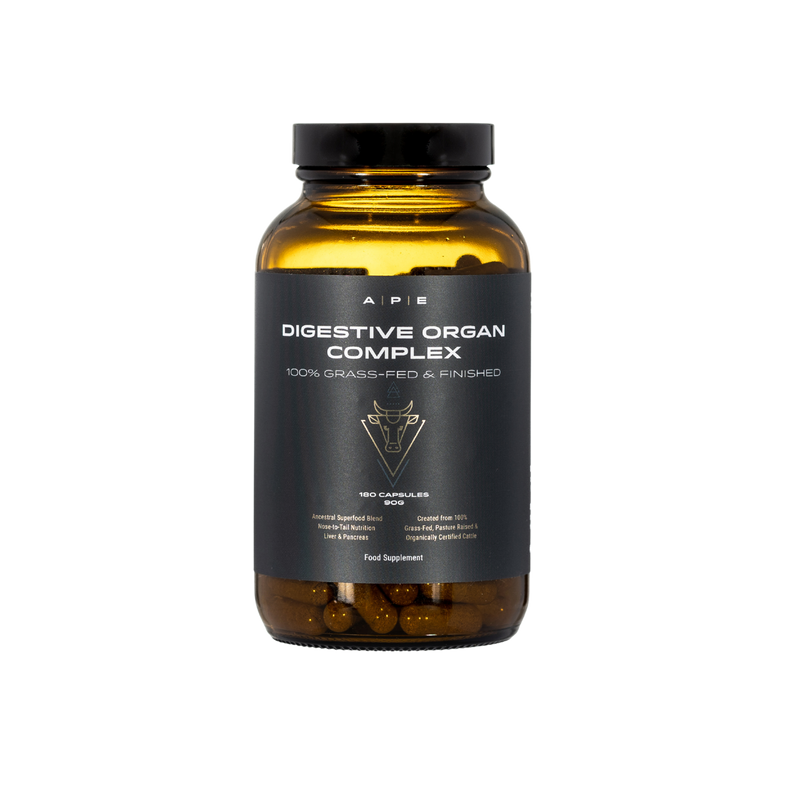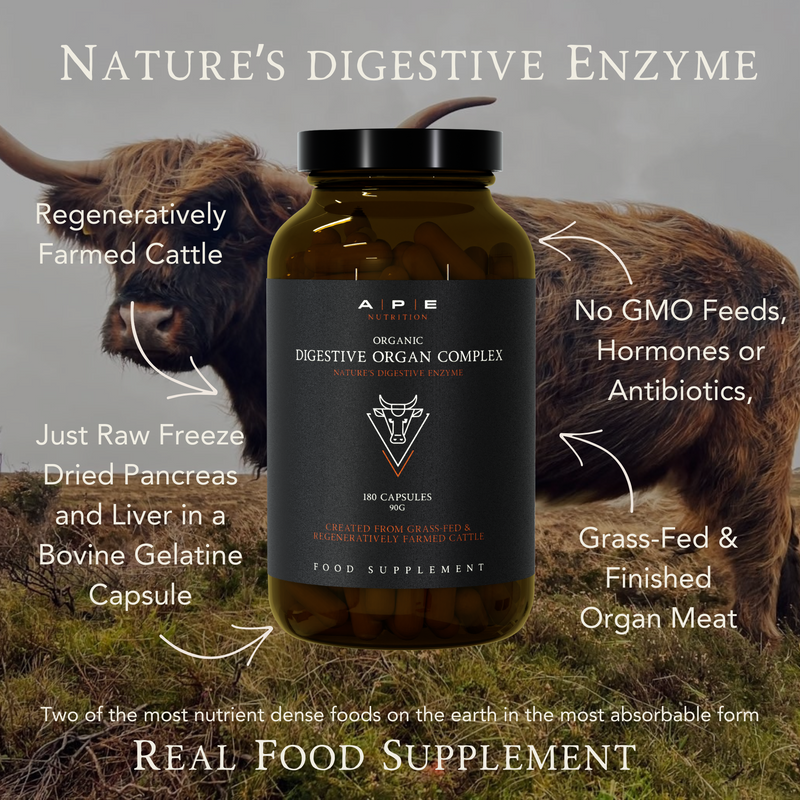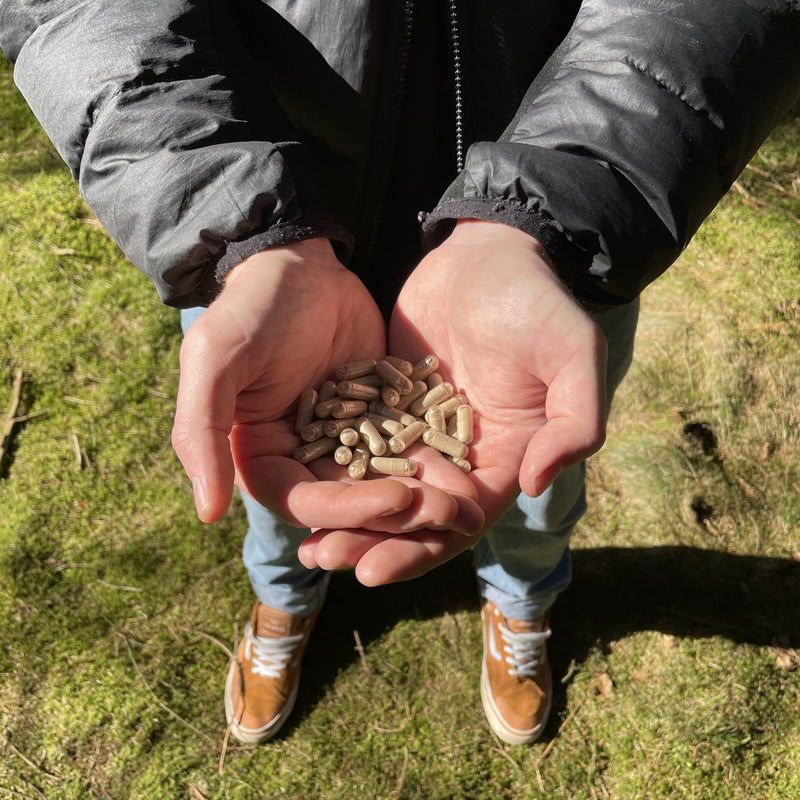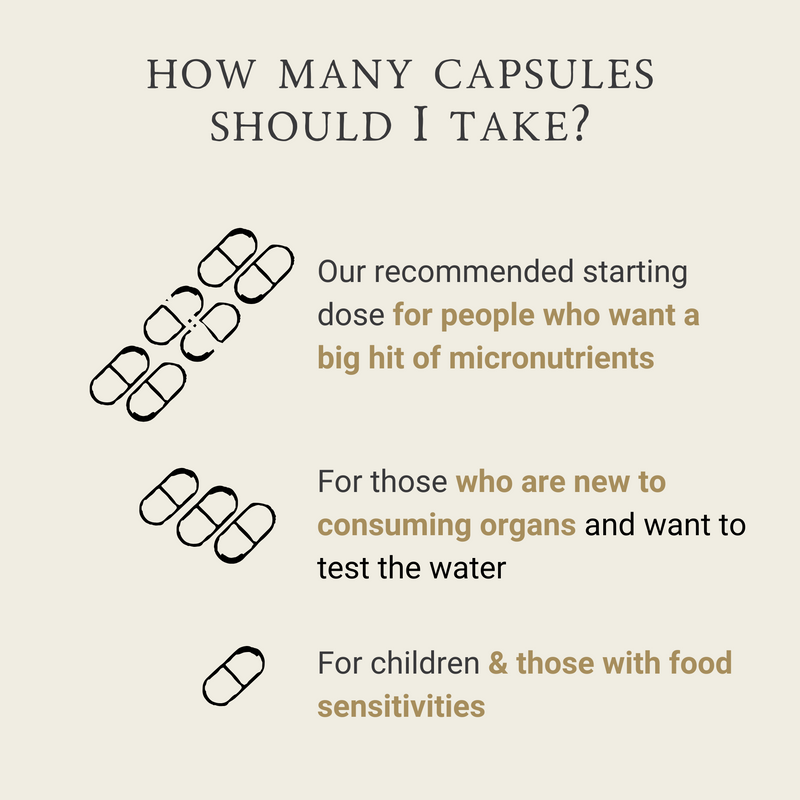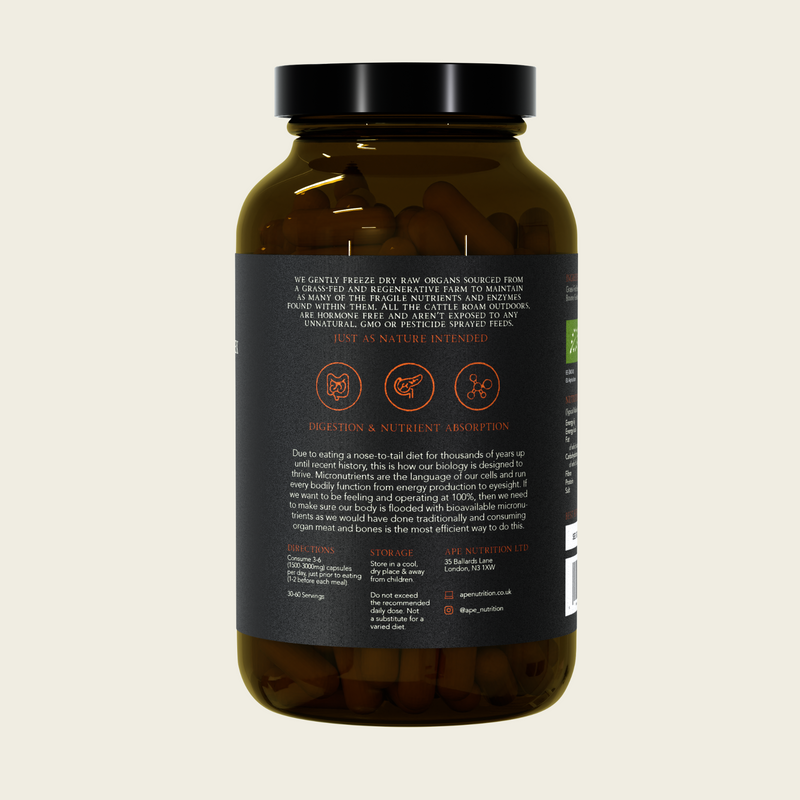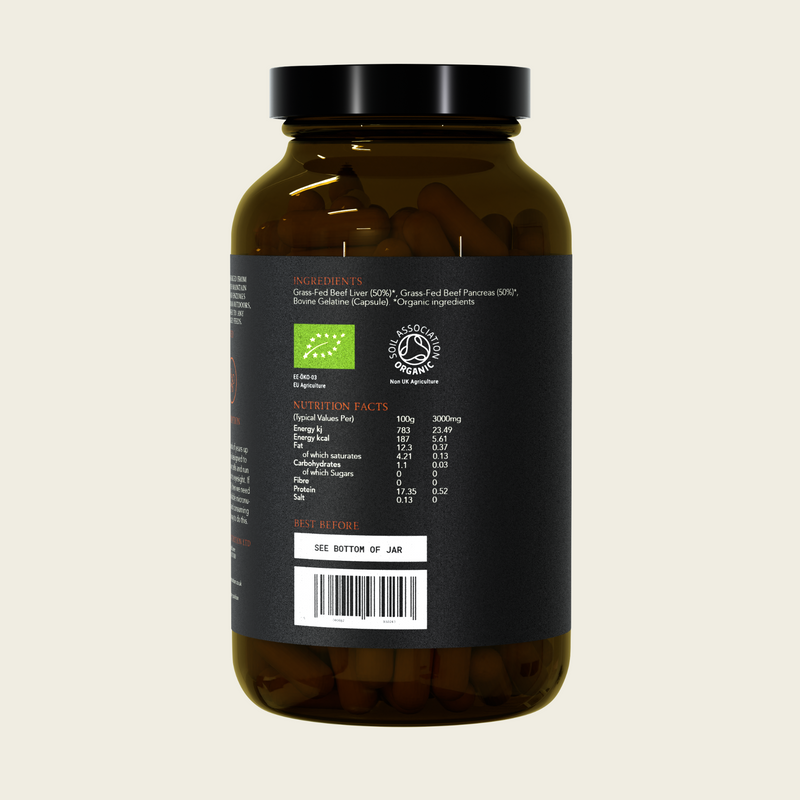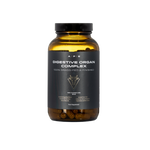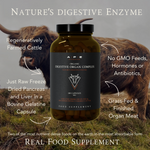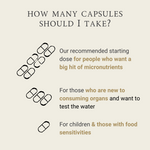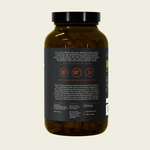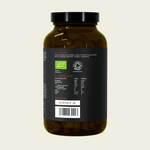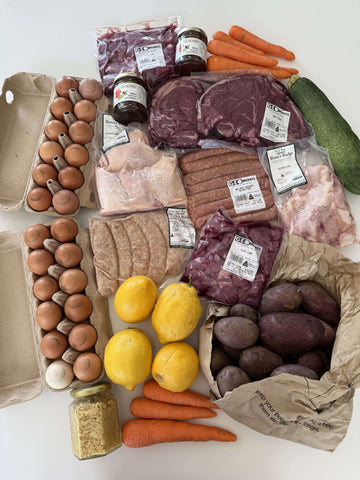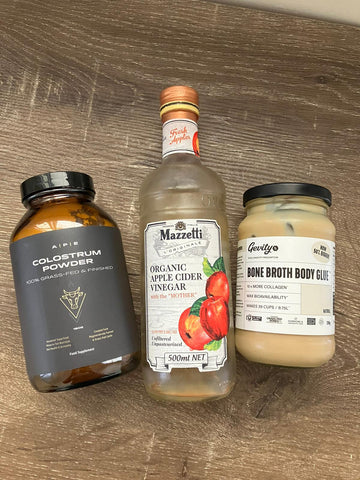Grass-Fed Digestive Organ Complex
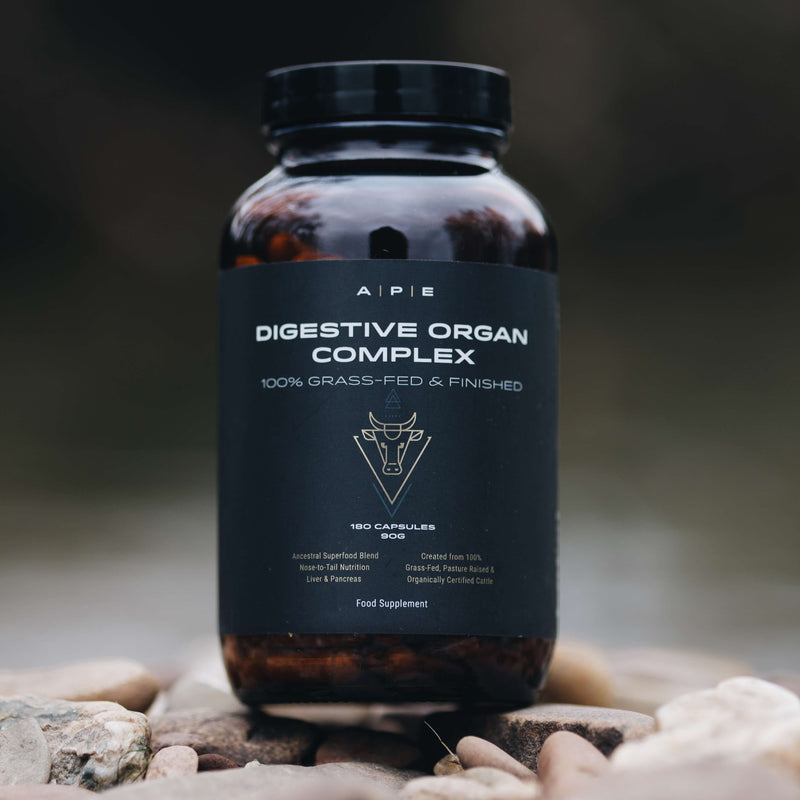
Digestive Organs
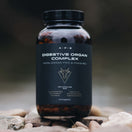 Jeannie
Jeannie

Digestive Organs
 Elizabeth
Elizabeth

Digestive Organs
 Leanne
Leanne

Digestive Organs
 Emmy
Emmy

Digestive Organ Complex
 Richie
Richie
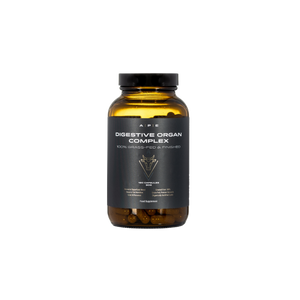
APE
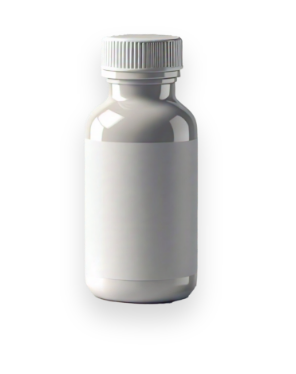
Other Brands
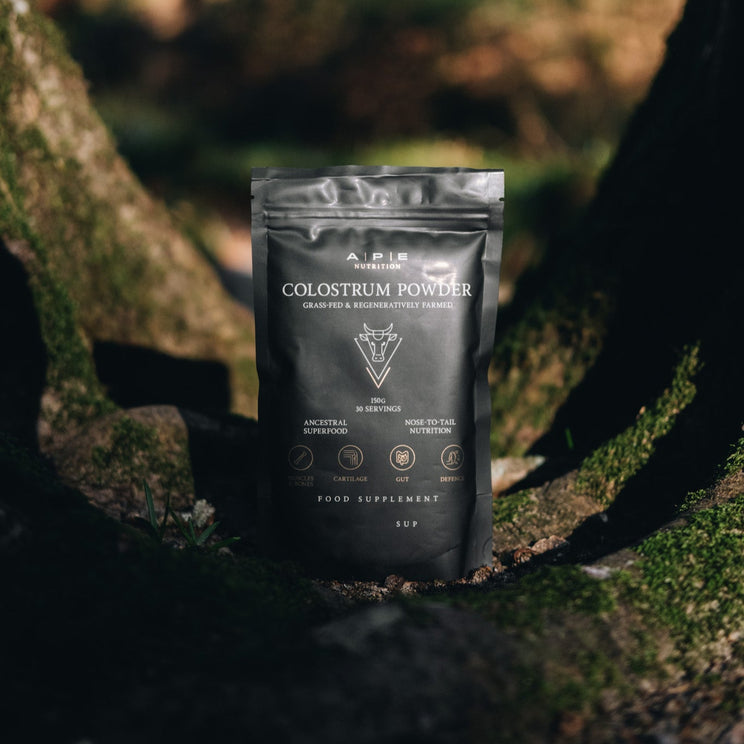 Grass-Fed Colostrum
Grass-Fed Colostrum
Colostrum is the ‘first milk’ produced by cattle in the hours following their infants birth to develop the calfs immune system and trigger growth. Our colostrum is from grass-fed / finished cattle and is ethically sourced from the surplus left after the calf has been fully nourished. We gently spray dry the milk into a powder, which is packed with nutrients, peptides and growth factors. This makes it an incredibly potent natural supplement that may help support immunity, lean muscle / connective tissue growth and gut health. Each bag contains 150g which equates to 30-50 servings.
Get a FREE* APE Nutrition Scoop with your first order!
*You'll receive 1 scoop with your first order of any grass-fed powder (one time only, not with each new order).
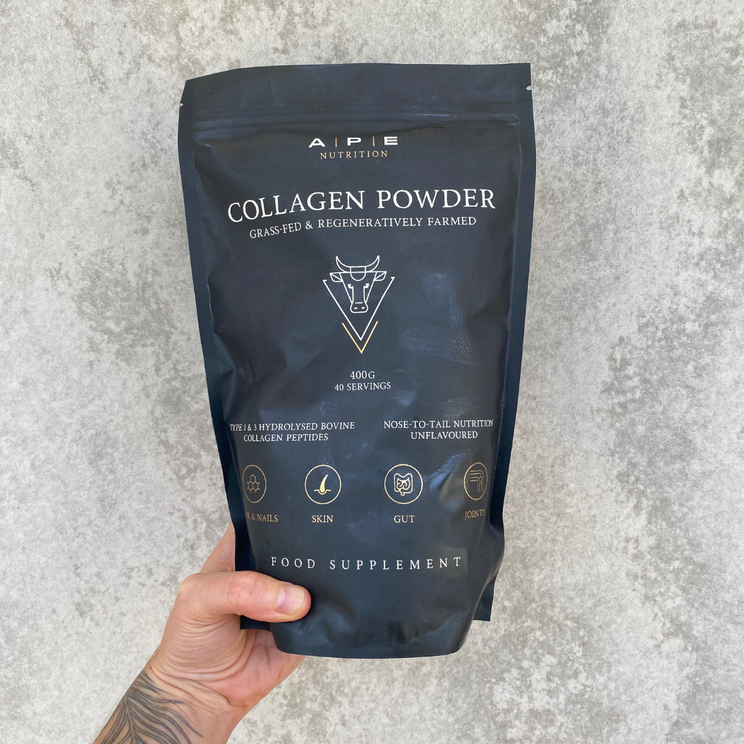 Grass-Fed Collagen Powder
Grass-Fed Collagen Powder
Being a major component of the human body (it makes up roughly 30% of total body protein), collagen gives structure to our tendons, ligaments, bones, skin, hair, nails and the gut lining. It's also been associated with longevity benefits due to balancing out the amino acid profile within the body and can support sleep quality. Our powder is a combination of type 1 & 3 collagen sourced from 100% grass-fed and finished cattle free from hormones, antibiotics or exposure to chemicals. Hot and cold soluble, as well as odourless and flavourless, our collagen peptides can be mixed into a wide variety of drinks or meals. Each bag contains 400g's (40 servings).
Get a FREE* APE Nutrition Scoop with your first order!
*You'll receive 1 scoop with your first order of any grass-fed powder (one time only, not with each new order).
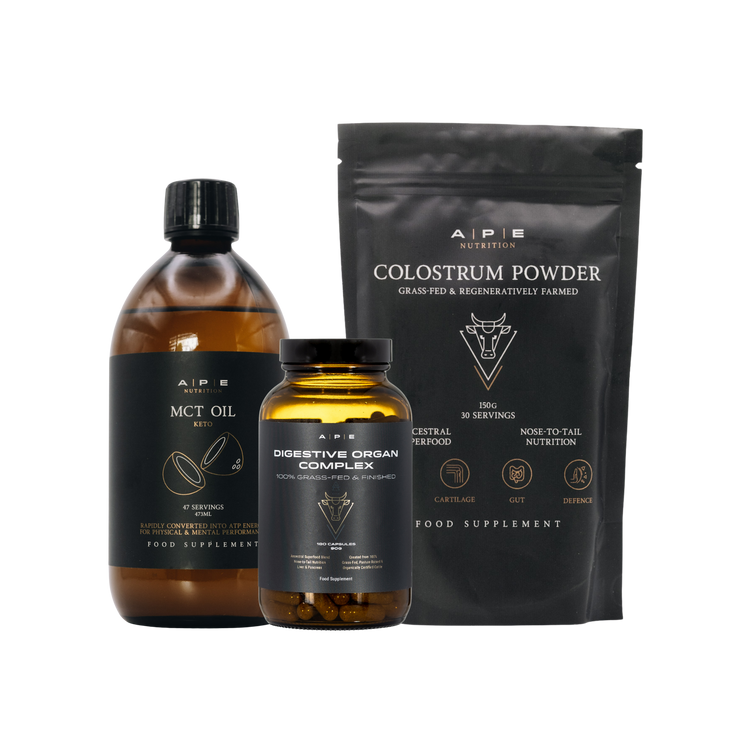 Gut & Digestion Bundle
Gut & Digestion Bundle
This bundle contains three incredible products to help improve digestion and heal the gut. MCT Oil is an antimicrobial, which can help reduce the amount of pathogenic bacteria in the gut microbiome. Colostrum contains transforming growth factors that stimulate the growth of connective tissue, including the gut lining, which in turn can support the healing of leaky gut. Lastly, our digestive organ complex contains pancreatic enzymes, which break down the food that we consume and help us absorb the nutrients from it.
*All our bundles cost 5% less than when the products are bought individually.
Get a FREE* APE Nutrition Scoop with your first order!
*You'll receive 1 scoop with your first order of any grass-fed powder (one time only, not with each new order).
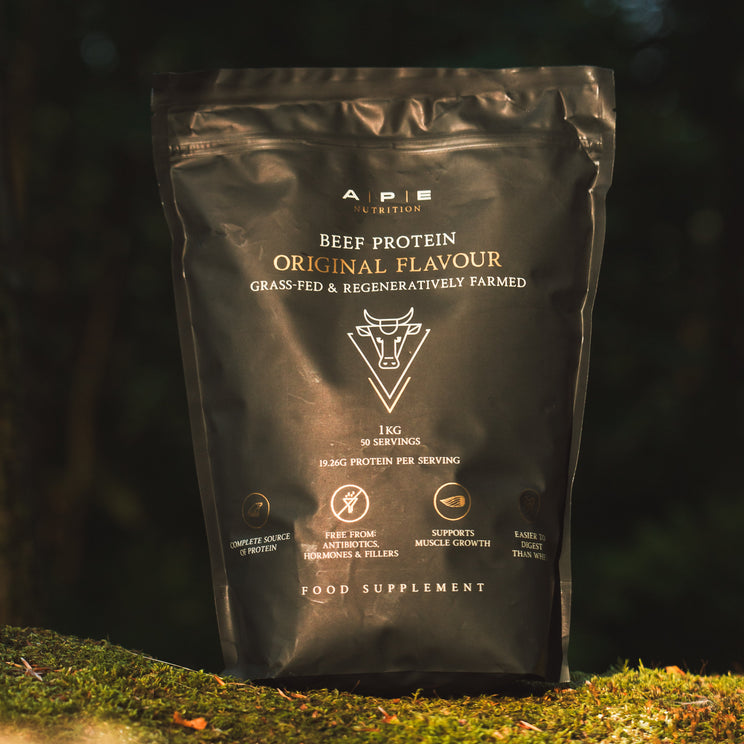 Grass-Fed Beef Protein | Unflavoured
Grass-Fed Beef Protein | Unflavoured
Protein Powder Made Differently | Beef protein (unlike whey and plant based options) is non-inflammatory, meaning you get all the benefits of protein powder; muscle growth, strength gain and fat loss*, without the bloating and discomfort. Not only this, but our grass-fed beef protein is highly bioavailable (absorbable) and also contains other nutrients beef is known for, such as; collagen, gelatine and a variety of vitamins and minerals.
Unflavoured has just one ingredient, grass-fed beef. That means it’s free from; dairy, whey, soy, fillers, artificial sweeteners and preservatives… all ingredients that are unnecessarily included in lots of protein powders today. Being made from beef and unflavoured, means it does have a mild beef taste, however this is easily masked when mixed with other ingredients in a shake or meals.
Our cattle are grass-fed, regeneratively raised, antibiotic/hormone free and come from farms that go above and beyond... following standards for biological diversity, climate impact and animal welfare.
Each bag contains 1kg of grass-fed beef protein, which equals 50 20g servings or 25 40g servings. Each serving contains 19.26 grams of complete protein containing all 9 essential amino acids.
*If you want to learn about the benefits of consuming protein beyond building or maintaining muscle, see the image to the left. We also have an article that deep dives on the topic on our blog.
Get a FREE* APE Nutrition Scoop with your first order!
*You'll receive 1 scoop with your first order of any grass-fed powder (one time only, not with each new order).
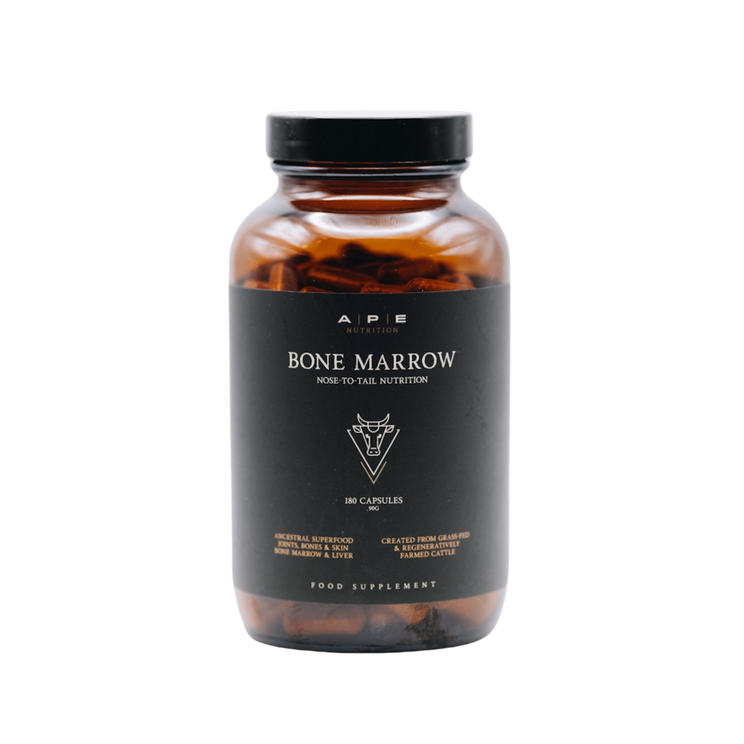 Grass-Fed Bone Marrow Capsules
Grass-Fed Bone Marrow Capsules
Bone Marrow is the fat held in the centre of animal bones and has a wide variety of health benefits that can support the strengthening cartilage / bones, immunity health, skin health, reducing inflammation and body composition. Rich in collagen, peptides, growth factors, stem cells and a wide variety of micronutrients, it’s one of nature’s superfoods, with research showing it can support your body's production of both red and white blood cells. All the bone marrow we source for our nose-to-tail line comes from regenerative farms where the cattle are 100% grass-fed and free to roam outdoors. We gently freeze dry the marrow raw to maintain as many of the nutrients and stem cells within it. Each jar contains 180, 500mg capsules (30 day supply).
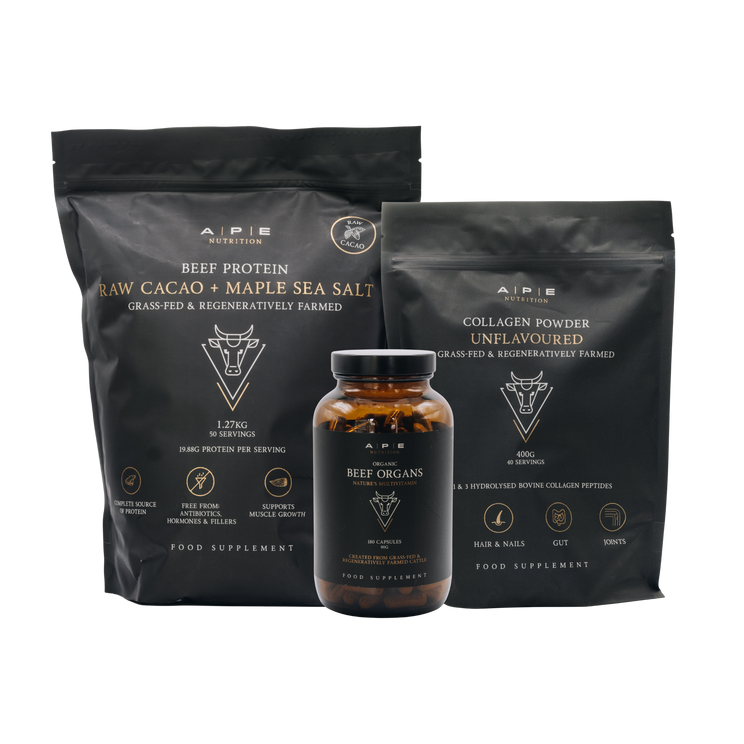 Foundations Bundle | Protein, Collagen & Beef Organs
Foundations Bundle | Protein, Collagen & Beef Organs
The Foundations Bundle made up from our best products to help support your health and performance every day. When combined, these three products provide you with a dense array of nutrients and support a wide variety of functions, including; overall well-being, energy, mental clarity, immunity, gut health, nutrient absorption, joint health, lean muscle growth, protein intake, skin elasticity / tone as well as strong hair and nails.
Bundle Includes:
New Grass-Fed Beef Protein Powder (choose between unflavoured, madagascan vanilla or raw cacao & maple sea salt)
Grass-Fed Beef Organs
Grass-Fed Collagen Powder
*If you want to learn about the benefits of consuming protein beyond building or maintaining muscle, see the image to the left. We also have an article that deep dives on the topic on our blog.
Get a FREE* APE Nutrition Scoop with your first order!
*You'll receive 1 scoop with your first order of any grass-fed powder (one time only, not with each new order).
*All our bundles cost 5% less than when the products are bought individually.
 Bulletproof Coffee Bundle
Bulletproof Coffee Bundle
This is one of our favourite product combination here at APE. We blend our organic Lion's Mane, MCT Oil and Grass-Fed Collagen with freshly ground coffee to create that limitless feeling before a big day of work or training. Lion's Mane is known for its ability to support memory and focus. MCT oil provides a clean source of healthy fats derived from 100% sustainably harvested coconuts for energy and gut health. Grass-Fed Collagen gives the coffee a creamy consistency whilst supporting your joint health and mobility, skin tone, hair and nail strength as well as gut health. This is our favourite way to set ourselves up for the day.
*All our bundles cost 5% less than when the products are bought individually.
Get a FREE* APE Nutrition Scoop with your first order!
*You'll receive 1 scoop with your first order of any grass-fed powder (one time only, not with each new order).





